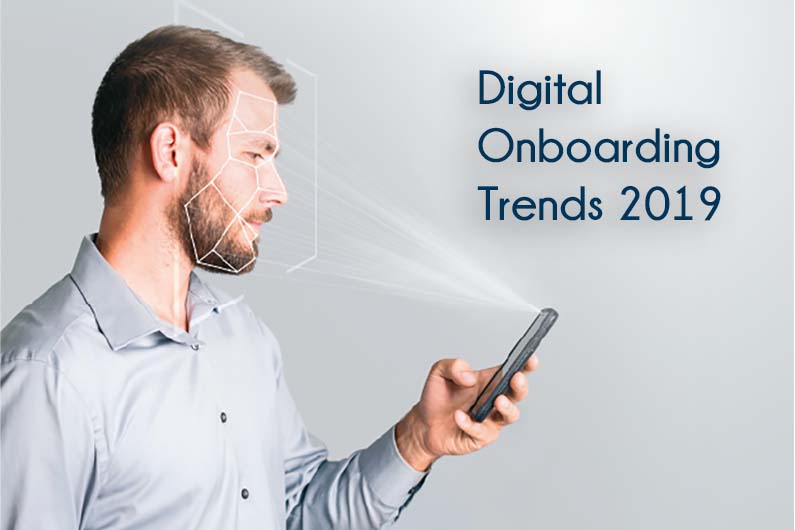No matter which industry or sector it is applied to, whether we are talking about the digital universe or the real world, first impressions are so important that they can make the difference between success and failure. Human beings are trained to make decisions in milliseconds thanks to biological mechanisms that we have developed over thousands of years of evolution. Our emotional brain is able to process information faster than our logical and rational brain.
For all these reasons, digital onboarding processes, registering a new client or opening a bank account are crucial and must be taken care of in detail.
Functionality, design, automatic processes and the customer experience are of vital importance if we want our clients to get an unbeatable impression and make them loyal from the first moment to becoming a fan of our brand.
What is Digital Onboarding?
In spite of being in the Financial Sector where the concept of Digital On-boarding has become relevant, we speak of digital onboarding to refer to any non-presential identification process (online) that allows a user to register as a new client of a company.
![]() «New clients’ on-boarding in banking institutions has evolved towards a 100% digital identity verification process, accelerated by technological advances, new generations of digital native users and destructuring of banks which originated after the crisis of 2008»
«New clients’ on-boarding in banking institutions has evolved towards a 100% digital identity verification process, accelerated by technological advances, new generations of digital native users and destructuring of banks which originated after the crisis of 2008»
![]() «New clients’ on-boarding in banking institutions has evolved towards a 100% digital identity verification process, accelerated by technological advances, new generations of digital native users and destructuring of banks which originated after the crisis of 2008»
«New clients’ on-boarding in banking institutions has evolved towards a 100% digital identity verification process, accelerated by technological advances, new generations of digital native users and destructuring of banks which originated after the crisis of 2008»
In Spain, this process has been possible in the financial sector since 2016, following the publication of the SEPBLAC regulations, authorising non-presential identification procedures, allowing customers to show their ID cards to a computer webcam or a smartphone camera, while the entire process is recorded on video. Any process of registration of a new client must comply with this regulation and meet KYC/AML regulations.
Collaboration between Fintechs, Neobanks and traditional banking is driving all these advances in digital onboarding processes.
Other industries where the identity verification in digital onboarding needs robust procedures to meet the different regulations in force, include the gaming and gambling industry, carsharing, hotels, car rental, insurance, human resources, etc.
Digital On-Boarding trends 2019
Last April, we were exhibitors at the“Future of Digital Onboarding and Customer Experience Summit for Financial Institutions”, where enjoyed two intense days of lectures, meetings, panels of experts and case studies about the current and future situation of new bank clients’ onboarding and their CX (Customer eXperience) in the financial sector.
After our participation in the different panels and round tables, it is clear that there is a world beyond passwords. Thanks to advances in biometric recognition technologies, document scanning and document verification, the market for Digital Identity and document verification services is particularly buoyant, with growth forecasts of 20%/year over the next 6 years.
What are the key digital on-boarding trends for 2019?
Digital Onboarding Simplified: Speed and Automation
If something is being prioritised by the different banking entities it is the importance to have super simple processes to onboard a customer digitally. In this sense, two aspects are taken into account during the registration process:
- Faster-Than-Ever. Customers today demand a quick and seamless digital experience, and they want it now: They want to enjoy a simple, convenient and secure onboarding process with the highest quality
- Automation. After automating the registration of a new client by allowing them to do it in an unassisted way, the next steps are to automate the document scanning process, the auto-completion of forms, the capture of the selfie to do the facial matching or the automatic detection of the type of identity document
Biometric Technologies: A Key enabler for future digital services
The global biometrics market is growing at an unprecedented rate, due to the need to combat the different cybersecurity challenges. In addition, the acceptance of this type of technology by users thanks to its popularization with the emergence of fingerprint sensors or specific cameras for facial recognition in many mid-range smartphones, will cause applications of biometrics to be even greater in the future digital world.
In addition, advances in Artificial Intelligence and Machine Learning are providing increasingly reliable results in the algorithms used to perform facial recognition.
In this context, the biometric facial recognition systems currently in use, which also allow the onboarding process to be automated, will be joined by other types of biometric recognition that will allow the client to be recognized passively.
Passive Liveness Detection
Another point to take into account when identifying a user through biometrics and which is closely related to a user-friendly experience is the use of passive facial liveness, without the need for user interaction. Examples include face detection, voice detection, or the way the computer or mobile keyboard is used.
In addition, this type of testing may be more secure because fraudsters are unaware that liveness check is happening.
Digital On-boarding process through web flow
Although initially digital onboarding was undertaken natively through iOS or Android apps that had access to all the sensors of the mobile device, the current trend is to perform the registration in a 100% web flow without forcing a user who is not yet a customer to download an App in order to register. For this reason, technology tends to be integrated into the registration process of the bank’s web platform.
Focused on customer experience (CX)
Customer Experience (CX)has become the main point of competitive differentiation in nearly every sector. CX is particularly critical in a service or finance industry where there isn’t a tangible product; it becomes all about the experience you deliver.
We also live in a world where customers are busier than ever, which means it’s essential to remove friction across all digital and physical channels throughout the entire customer journey and enable hybrid experiences. Clients will be happy not to deal with time-consuming, non-essential paperwork and have the chance to focus on more valuable information.
Humanizing Customer Experience
Companies are increasingly aware of the importance of analytics and artificial intelligence (AI) to find out what really matters to their customers. This allows them to know what works best and to offer processes and products tailored to their needs.
Fostering digital empathy will provide the foundations for our customers’ loyalty and trust in the company. The concept of «Cognitive Banking» is more real today than ever thanks to advances in AI and Big Data.
Conclusion
Thanks to different factors such us technology innovations, but mainly supported by the regulatory framework that has allowed the financial sector to register a new customer in a completely digital way, the digital onboarding system has been widely implemented in this industry, making it transversal to many other industries which has meant an improvement for users and companies.
However, at Mobbeel we are aware that it has not yet reached its limit and that it can still evolve and add much more value to customer acquisition in financial institutions. If the focus until now was on technology reliability, speed, automation, OCR or efficiency of biometric recognition algorithms, there is still work to be with document validation that helps fraud prevention.
Our KYC tool to perform the Digital Onboarding process also covers ID document validation through holograms and laser marks verification, validation of digitally manipulated images, reading of new documents that incorporate NFC, improvement in biometric recognition algorithms, etc.
If you are interested in our technology do not hesitate to contact us, and if you liked the article, share it and add value to your followers!

I’m a Software Engineer with a passion for Marketing, Communication, and helping companies expand internationally—areas I’m currently focused on as CMO at Mobbeel. I’m a mix of many things, some good, some not so much… perfectly imperfect.

GUIDE
Fully know your customers and drive the growth of your business
The journey between an organisation and its clients begins with proper verification, ensuring the safety of both parties. This KYC guide is essential for understanding the importance of knowing your users and complying with legal requirements.




